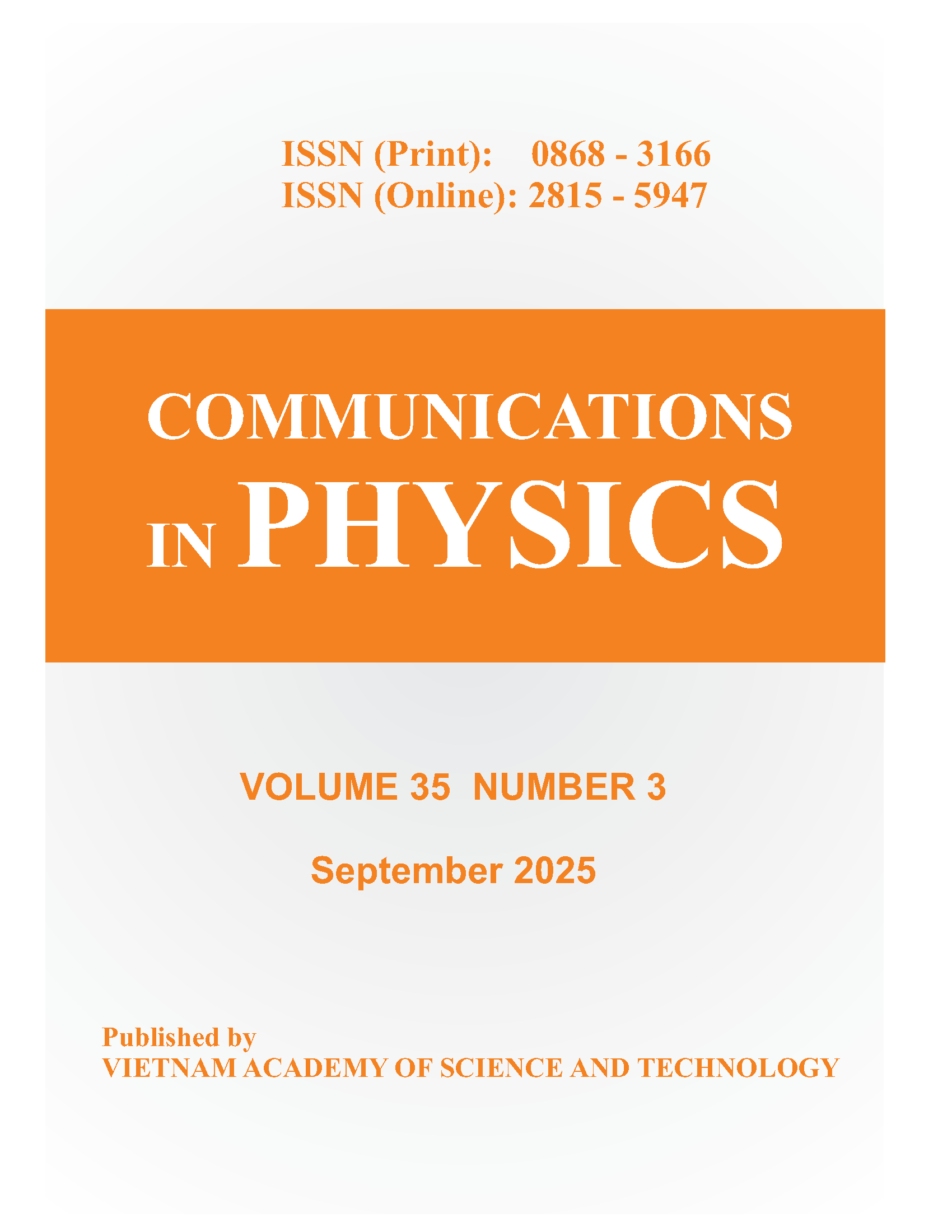High-order Harmonic Generation from Hydrogen Molecular Ion in Coherent Superposition State
Author affiliations
DOI:
https://doi.org/10.15625/0868-3166/30/2/14682Abstract
Atom in a coherent superposition state reveals an advantage in the enhancement conversion efficiency of high-order harmonic generation (HHG), which is meaningful in producing attosecond pulses. In this study, we expand to investigate a more complicated system, H\(_2^+\) molecule in the superposition of the ground and second excited states, exposed to an ultrashort intense laser pulse by numerically solving the time-dependent Schrödinger equation. Firstly, we examine the enhancement of HHG from this system. Then, we study the depletion effect on the cutoff energy of HHG spectra with the coherent superposition state. We found that these effects on the HHG from molecules are similar to those from atoms. Finally, we study the signature of the interesting effect, which is absent for atoms -- two-center interference effect in the HHG from H\(_2^+\) in the coherent superposition state. We recognize that the minimum positions in HHG from molecules in the superposition state, and in the pure ground state are the same. Especially, for weak laser intensity, in the HHG with the superposition state, the minimum due to the interference effect is apparent, while it is invisible in the HHG from pure ground state. As a result, in comparison with the ground-state molecule, the coherent molecule can be used as a more accurate tool to determine the internuclear distance of molecule.Downloads
Downloads
Published
How to Cite
Issue
Section
License
Communications in Physics is licensed under a Creative Commons Attribution-ShareAlike 4.0 International License.
Copyright on any research article published in Communications in Physics is retained by the respective author(s), without restrictions. Authors grant VAST Journals System (VJS) a license to publish the article and identify itself as the original publisher. Upon author(s) by giving permission to Communications in Physics either via Communications in Physics portal or other channel to publish their research work in Communications in Physics agrees to all the terms and conditions of https://creativecommons.org/licenses/by-sa/4.0/ License and terms & condition set by VJS.











